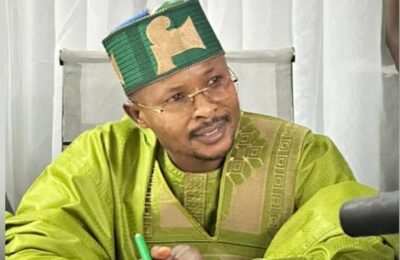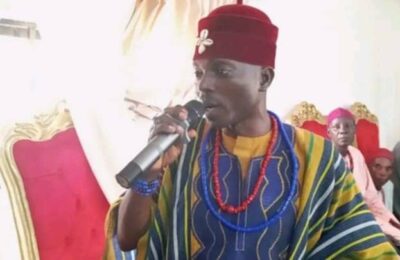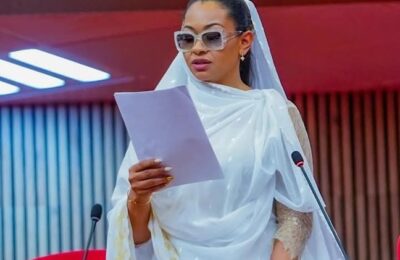The Minister of Innovation, Science, and Technology, Chief Uche Nnaji, has hailed the National Space Research and Development Agency for its 25 years of contributions to space science and technology in Nigeria.
Addressing the press in Abuja on Thursday ahead of NARSDA’s 25th anniversary, the Minister expressed pride in the agency’s progress and emphasised its vital role in positioning Nigeria as a leader in space exploration and scientific innovation.
“Sincerely, I appreciate the trust and belief the President has in science and technology, and NARSDA has been at the heart of this transformation.”
Reflecting on NARSDA’s achievements, Nnaji noted that the agency had made significant strides in satellite technology, geographical information systems, and data acquisition that were previously outsourced to the private sector.
“NARSDA started doing geographical information systems. They did for Imo and it’s ongoing. They are doing for Kogi, and they’re negotiating with many other states. This is something we didn’t have before. NARSDA is doing very well,” Nnaji said.
The Minister further lauded the agency’s collaboration with international partners, citing recent successes, such as the agency’s partnership with ASIM Space and its ambition to launch Nigeria’s first fully indigenous satellite systems.

“We are going to launch satellites that we have the mission center, base center, and the data center all in Nigeria. We are not going to have it in other countries and claim that we have a satellite,” he declared.
He added that NARSDA’s efforts are seen as an essential part of the nation’s broader scientific innovation agenda.
Nnaji has pushed for increased support for space technology and innovation in Nigeria.
“The President’s wisdom in prioritizing science and technology at the UNGA was groundbreaking. For the first time, innovation and science were at the center of our discussions at the United Nations General Assembly, leading to fruitful collaborations with global entities like USAID, ITC, and the Commonwealth Secretariat,” the minister stated.
Nnaji emphasised that these partnerships would boost Nigeria’s capabilities in artificial intelligence and space research.
He highlighted the upcoming launch of a Commonwealth AI Academy that aims to train over one million Nigerians in AI, supporting both public servants and private sector entrepreneurs.
“This is a game-changer for Nigeria. It will contribute to the Renewed Hope agenda by equipping our youth with the skills to drive innovation,” he said.
Reflecting on the country’s space ambitions, Nnaji revealed that Nigeria would soon be able to monitor key national issues, including oil theft, environmental changes, and security concerns, using satellite technology.
“With four satellites including SAR (Synthetic Aperture Radar), we will monitor oil bunkering, pipeline vandalization, and even track insurgents and kidnapping activities across the country,” he said.
On the international front, Nnaji detailed Nigeria’s growing influence on the global stage, particularly following the country’s participation in United Nations General Assembly.
“We were able to meet with the Secretary-General of the United Nations and engage in discussions that will directly benefit our space program,” he said.
“We also visited Princeton University’s Plasma Technology Center, which is developing cutting-edge technologies for energy and medicine. We have a partnership in place to set up a plasma lab in Nigeria, another significant step forward in our scientific collaboration with the world,” he added.
The Minister also noted ongoing efforts to address funding challenges in space science and technology, acknowledging that financial constraints have historically hindered the country’s space ambitions.
However, he expressed optimism with the establishment of the Nigeria Research and Innovation Fund.
“With this fund, there will be more resources for researchers and innovators, and Nigeria will become a major player in global space technology and innovation.”
Nnaji emphasised that the key to Nigeria’s future scientific success lies in both public-private partnerships and effective commercialization of research.
“We must not just conduct research for research’s sake. We must focus on commercializing these innovations to generate wealth and create jobs,” he stressed.
He said NARSDA’s 25th anniversary marks a significant milestone in Nigeria’s pursuit of technological self-reliance.
“I can tell you, NARSDA is worth celebrating. We are moving forward, and we have a president who understands the importance of innovation and technology to drive national development,” he said.





